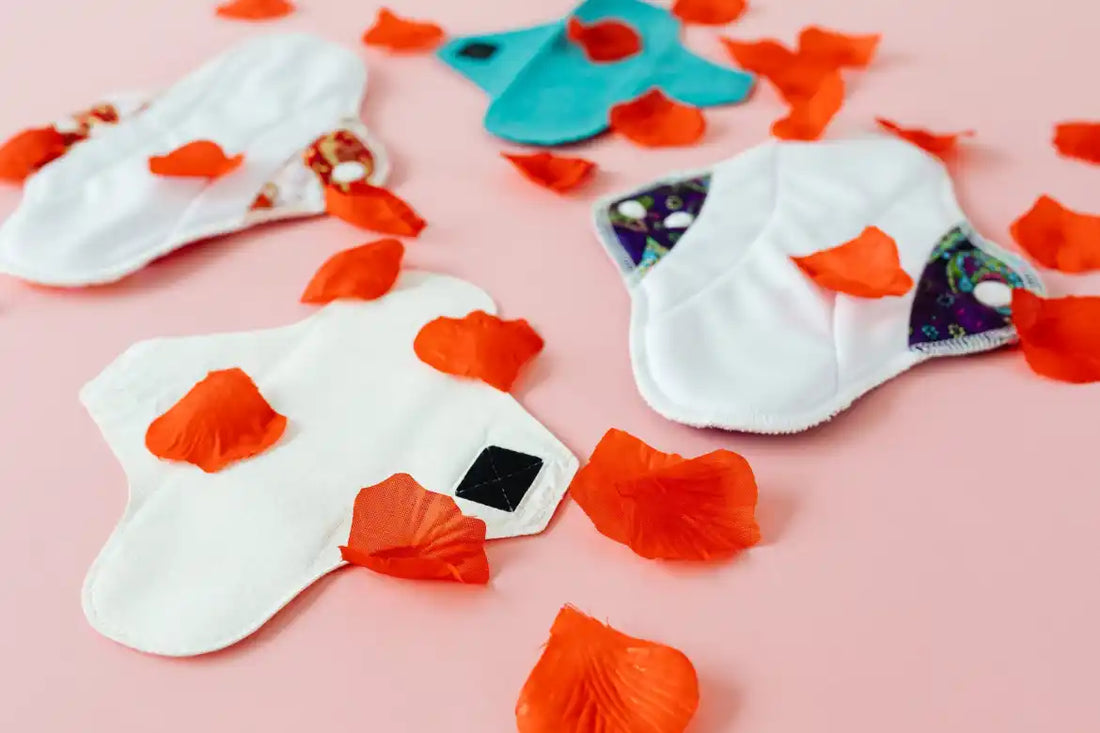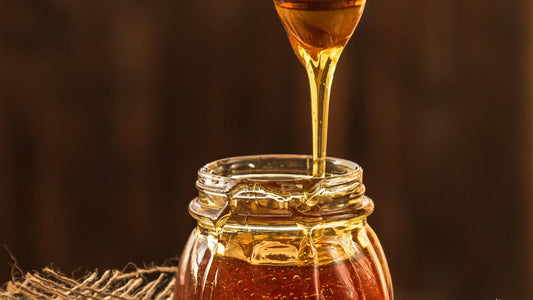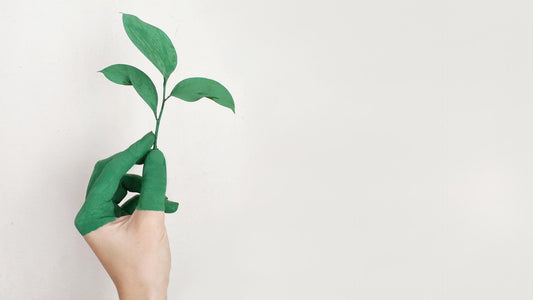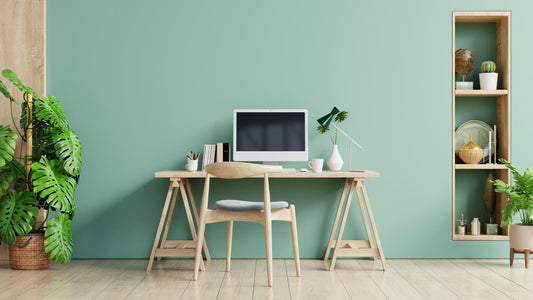
Menstrual Poverty: One pad at a Time
Share
The truth is that I cannot love being a woman while hating my period. Nikki Tajiri
When I was a teenager, I often felt guilty asking money from my parents to buy menstrual products. My family was struggling financially, and I knew that, having many sisters, adding the cost of pads to our expenses could be a burden. Little did I know that my experience was just one piece of the giant puzzle known as menstrual poverty.
Menstrual poverty isn't restricted to developing countries; it's a problem closer to home than we might think. It's a harsh reality that many individuals face each month, regardless of location.
The EU parliament has estimated that a woman's yearly spend on menstrual hygiene products is around €675. That is around €27,000 in our lifetime. And 1 in 10 people who menstruate will experience period poverty.
Breaking the Taboo
One significant reason why menstrual poverty isn't as widely acknowledged, especially among men, is the enduring taboo around menstruation. Menstruation, for the longest time, has been shrouded in secrecy and taboo, especially in conservative countries. It's not something openly discussed, and this silence has contributed to the lack of awareness about menstrual poverty. I can personally relate to the times I resented being a woman because of the monthly bleeding and cramps.
On the flip side, menstruation is a powerful and unique aspect of womanhood. It's a reminder of the incredible abilities of the female body and its capacity to generate life. Something worthwhile celebrating! By embracing our periods, we can start breaking down the stigma around them.

Here are some unique facts about menstruation that you should know:
- Menstrual Cycles Are Unique: Just as every person is unique, so is their menstrual cycle. No two cycles are identical, and that's something to celebrate.
- Period Sync Is Real (and Cute): Studies have revealed that women who spend much time together, get their menstrual cycles synced up. This phenomenon is known as "menstrual synchrony" or the "McClintock effect'. It seems that nature doesn't want women to be lonely on this journey.
- PMS Has Its Perks: Often we talk about PMS (or pre-menstrual tension) with dread, but it is not all bad! Surprisingly, some women (including me) report experiencing a boost in creativity during their premenstrual phase. That's why I'm writing this article now.
- Time for Self-Care: While periods can sometimes come with discomfort, they can also remind you to prioritise self-care and relaxation. Treating yourself with care and kindness during this time is something to look forward to.
- Health and Fertility Indicator: Your menstrual cycle can offer valuable insights into your overall health and fertility, making it a helpful tool for family planning and monthly health check-ups.
- Resilience in the Face of Cramps: Many women experience intense cramps, pain and discomfort during their periods. Still, their strength shines through as they continue their daily tasks. Women are incredibly strong and capable, right?

What is Menstrual Poverty?
Menstrual poverty, or period poverty, is a term that describes the hardships many individuals face due to the unaffordability and inaccessibility of menstrual hygiene products. It doesn’t just refer to the financial aspect of women’s periods, but also to the lack of access to sanitary products, education on menstrual hygiene and waste management.
It's a situation I became acutely aware of when I realised that a friend of mine was suffering from it. At that time, I thought my family's financial situation was challenging, but that of my friend was even more difficult. They would try to make their single pads last as long as possible. Their supply was so limited, that sometimes they would wear a pad for up to two days! Yes, we might think it is unhygienic, but what options did they have?
As I grew up, I realised this issue wasn't confined to my circle of friends. In my country, many stories circulate of women who, due to financial constraints, deliberately chose to get pregnant. They believe that it is more cost-effective to bear a child for several months than to purchase menstrual products regularly. Of course, that does not seem like a sound long-term choice.
It's important to understand that menstrual poverty affects various social groups, including low-income families, homeless individuals, students, and indigenous and rural communities. This makes it a widespread problem that demands our attention and action.
Also in Europe, Period Poverty is an issue. In Austria for example, the Austrian Social Ministry stated in its 2022 Women’s Health Action Plan that the country has a low level of health literacy in comparison to other countries. They also connected low economic status with insufficient health literacy. During 2021/2022, hundreds of thousands of tampons and pads were distributed for free in Vienna and other regions in the country.

Menstrual Poverty and its Connection to Sustainability
Why should we connect period poverty with sustainability? Because a holistic approach could alleviate the immediate financial burden, address environmental concerns, promote cost-effective solutions, and empower individuals and communities. It's a win-win strategy for both people facing period poverty and the planet.
Here are some relations to consider:
1. Environmental relation
Single disposable menstrual products, the kind many of us have used for years, take centuries to decompose. It can take up to 500 years to break down. Think about it! All those pads and tampons we've used throughout our lives are still out there, clogging landfills and contributing to pollution.


This is where sustainable alternatives like reusable cloth pads, menstrual cups, or organic tampons come into play. Not only are they eco-friendly, but they also help combat period poverty by offering a cost-effective, long-term solution. For example, the average woman might use 12,000 to 16,000 disposable pads and tampons in her lifetime. Switching to reusable options significantly reduces this environmental burden, as one menstrual cup, when used properly, can last for up to ten years.
2. Societal relation
But the issue of period poverty isn't just environmental; it's about social justice and human dignity.
When people cannot afford or access proper menstrual hygiene products, it hinders their ability to participate fully in daily life. This includes attending school, working, and engaging in various activities. Girls may miss school because they lack the necessary products, and adults are faced with the choice of putting food on the table or buying menstrual products. This social pressure and imbalance hampers personal development and perpetuates cycles of poverty.
The link between period poverty and social sustainability becomes even more evident when considering the impact of alternatives such as deliberately getting pregnant. It's a heart-wrenching fact that some people choose pregnancy as a way to avoid the recurring costs of menstrual products. We cannot take lightly the long-term financial burden and the ecological impact of this choice. According to the United Nations, a woman in a low-income country may spend as much as 10-15% of her income on menstrual products This is an astonishing figure when you think about the basic necessity they represent.

How can you help?
We can actively contribute to combat period poverty and promote sustainability in several ways. Remember that menstrual products encompass more than just pads, tampons, or menstrual cups; they also include pain relievers, heat packs, proper hygiene, and additional underwear, all crucial for managing menstruation comfortably and with dignity.
Some things you can do to tackle period poverty:
- Donations: Consider donating reusable pads, tampons, or organic pads to local shelters, schools, or organisations that support people in need. Your contribution can help ensure that everyone has access to essential menstrual products.
- Raise Awareness: Start conversations, especially among men, to break the stigma surrounding menstruation. Education and awareness are crucial to dismantling the taboos associated with periods and fostering empathy and support.
- Support Local Initiatives: Get involved in or start local initiatives to provide menstrual products and education to those experiencing period poverty. If there are no local initiatives, you can engage your local administration.
- Advocate for Policy Change: Advocate for policies that ensure free or affordable menstrual products in schools, workplaces, and public spaces. Push for initiatives that consider sustainability and accessibility. In several countries around the world, the VAT of period products has been reduced or abolished and it would be amazing if these measures became global.
- Promote Sustainable Options: Encourage using sustainable menstrual products, such as menstrual cups, cloth pads, or period underwear. You can share your review on your social media or with your friends and highlight their cost-effectiveness and eco-friendliness to make them more accessible to those in need.
What we, at Green Cloud Nine, particularly admire about companies promoting sustainable menstruation products is their approach to reducing environmental stress. They often provide long-lasting items, in-bulk products and planet-friendly packaging, which help minimise CO2 emissions. This means you won't have to fret about restocking your menstrual products every month.
In summary
Creating a better world begins with understanding, empathy, and action. Menstrual poverty is a real challenge impacting many lives, but if we all pitch in, we can move it away from stigma and taboos. So, let's have those important chats, and ensure that every woman, no matter her financial situation, can comfortably navigate her unique menstrual journey while being kind to our planet. A big shoutout to all the incredible women in our lives who inspire us with their strength and resilience, constantly pushing through barriers.
With the help of communities like Green Cloud Nine and the collective efforts of people like you, we can break the silence. Remember, if we can bear the pain of menstruation and the incredible journey of bearing children, we are capable of absolutely anything. Women are capable of extraordinary feats, and together, we're proving it every day.




